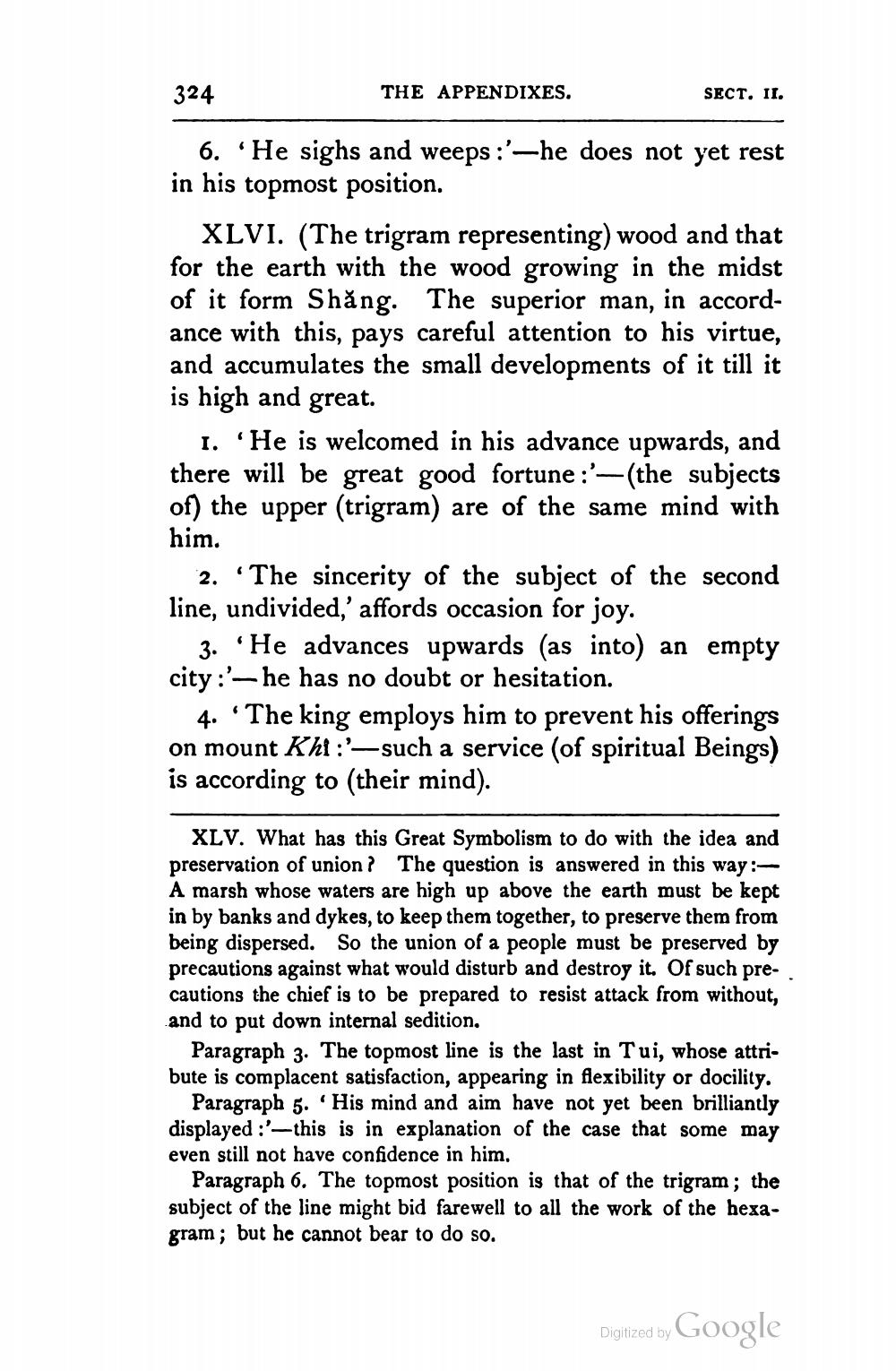________________
324
THE APPENDIXES.
SECT. II.
6. 'He sighs and weeps :'-he does not yet rest in his topmost position.
XLVI. (The trigram representing) wood and that for the earth with the wood growing in the midst of it form Shăng. The superior man, in accordance with this, pays careful attention to his virtue, and accumulates the small developments of it till it is high and great.
1. He is welcomed in his advance upwards, and there will be great good fortune :'-(the subjects of) the upper (trigram) are of the same mind with him.
2. The sincerity of the subject of the second line, undivided,' affords occasion for joy.
3. 'He advances upwards (as into) an empty city :'- he has no doubt or hesitation.
4. The king employs him to prevent his offerings on mount Khi :'-such a service (of spiritual Beings) is according to (their mind).
XLV. What has this Great Symbolism to do with the idea and preservation of union? The question is answered in this way : A marsh whose waters are high up above the earth must be kept in by banks and dykes, to keep them together, to preserve them from being dispersed. So the union of a people must be preserved by precautions against what would disturb and destroy it. Of such precautions the chief is to be prepared to resist attack from without, and to put down internal sedition,
Paragraph 3. The topmost line is the last in Tui, whose attribute is complacent satisfaction, appearing in flexibility or docility.
Paragraph 5. His mind and aim have not yet been brilliantly displayed :'--this is in explanation of the case that some may even still not have confidence in him.
Paragraph 6. The topmost position is that of the trigram; the subject of the line might bid farewell to all the work of the hexagram; but he cannot bear to do so.
Diglized by Google




